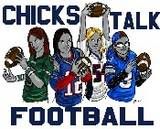I Can't See Around Barry Bonds' Giant Head
So everyone that knows me and knows that I can't keep my eyes off a sports section or away from obsessively checking ESPN.com every seventeen seconds has asked me for my take on this steroid business. 'Cause y'all know if it's sports related, Kristen has an opinion on it. See my previous "Can we all just shut the hell up about Peyton Manning?" rant. But here's the thing, where this steroid thing is concerned, I'm a little more neutral. I know, shocking, but allow me to explain.
Two weeks ago or so, it came out that in his grand jury testimony, Jason Giambi admitted to using steroids. A sports-obsessed nation clutched its' collective pearls and tsk tsked and we read about the Yankees attempting to dump Giambi and his prohibitively large contract once they had proof that it was through his own doing that he became little more than the world's most expensive paperweight this year. And then we all moved on. For a day or so.
Then, we found out that Barry Bonds, "Mr. 73 homers in a season," "Mr. Assault on Hammerin' Hank's Homer record," "Mr. Buy Some Kentucky Fried Popcorn Chicken or I will crush you with my comically large head," also took steroids. Now here's what surprised me. People were shocked. Shocked and appalled. That Barry Bonds took steroids. Read that again. This speaks to a more clueless national consciousness than the fact that the public was surprised that Ashlee Simpson used backing vocals on Saturday Night Live. At least that one, I suppose you could be all, "But it's called 'Saturday Night Live' so I just assumed..." Yeah. Okay. But can you honestly tell me that you believed Barry when he said that he'd never knowingly taken steroids? For real? You believed a man who, prior to his 73 long balls which set the major league record, his previous high was 49 the year before? You believe that a 36-year-old would magically get 24 homers better over the span of one year? And more to the point, have you seen Barry Bonds? Have you looked at his Popeye muscles lately? Have you noticed that he has trouble fitting his head through a regulation-sized clubhouse door and that ain't just because of the ego crammed in there?
Sportswriters and radio show hosts are all up in arms about what to do regarding Bonds' past and eventual records. Was he on the juice when he hit 73 homers? What about if he breaks Hank Aaron's record? What then? And it goes beyond Bonds. Once you start those arguments you get into the whole "Mark McGwire was on Andro when he set what was at the time the single season home run record in 1998 with 70 and even though Andro wasn't banned then it is now so isn't that kind of unfair?" thing. And what about Giambi's 2001 MVP year? What of that? Does that not count anymore? Or, if you're a Red Sox fan, what about Giambi's two 'roid-enhanced home runs in last year's ALCS Game 7, without which, New York surely wouldn't have won the game and the Red Sox would have had to talk about "85'ing the Curse?" What of that?
It's a particularly messy and unpleasant can of worms. More so because baseball, more than any other sport is obsessed with history. You cannot toss a knuckleball without hitting someone's run at a record. This year it was Ichiro who broke George Sisler's single-season hit record. Next year, it'll be something else. And the problem becomes that much more difficult when you realize that baseball is, by and large, defined by its past. It is a historic game that has remained largely unchanged for the past century or so. The game that Ted Williams and Ty Cobb played is the same game that Bonds, McGwire and Giambi play. There are still ninety feet between bases and thanks to a Curt Schilling Ford Truck commercial repeated ad nauseum this year, everyone in Red Sox Nation knows that there are still 60 feet, six inches between the pitcher's mound and home plate. There are still three outfielders, four infielders, a catcher and a pitcher. The positions haven't changed, and for the most part, neither have the rules. So what of these new records? Many argue that players have gotten bigger and stronger naturally and as such, the games' records will change. Fair point. But what about the ones that have gotten bigger and stronger through unnatural methods? How does that change history?
This is the part of the argument where it gets a little sticky. I've heard the argument - hell, I've even used it myself in the past - that steroids, unlike gambling (another no-no or haven't you heard of Pete Rose?) affects only one player and does not tarnish the integrity of the game. I disagree. I would argue that it does, and how. Let's say that Barry Bonds eventually breaks Hank Aaron's home run record - something that seems nearly a given at this point. And let's say he was on steroids for at least part of his record-setting seasons. Does that not tarnish the integrity of the game? Is Hank Aaron, long synonomous with the game of baseball, not shafted? Is Babe Ruth not unfairly pushed aside? And what of the players who have never used steroids? What glory do they get because they've chosen to play the game the right way and use their talent and hard work to get ahead? Many argue that players who use steroids only hurt themselves. I disagree. They hurt every other player, past, present and future who will eventually be listed below them on an "all-time" stat sheet. They hurt the fans who pay lots of money to watch men compete in a pure game of sport. They hurt high school and college players who, whether they admit it or not, hold these pros up as role models and emulate their behavior. And yes, they hurt themselves. But most of all, they hurt the game of baseball. They are saying that they, the players are above the game by essentially declaring, "It's not enough for me to get paid millions of dollars to play a little boy's game. I need all the records and adulations too. Even if I have to get them unfairly." It's the ultimate disrespect. In a sport where history is the game and the pursuit of history is what we all play for, aren't unfair means to an end the ultimate disrespect to the game of baseball? I think so.
The matter of punishment is more difficult. No one is going to admit that steroids aren't all that bad or that those who choose to use them shouldn't be punished. But what someone says and what someone does are two completely different things. On the one hand, we all understand that steroids = bad but on the other hand, home runs sure are fun to watch. On the one hand, what about the high school kids who start popping pills? But on the other hand, that home run chase is really helping us sell tickets. Baseball has itself in a tight spot. Partly because it's so difficult to determine exactly what effect steroids have on a player's abilities in the first place.
My dad has always said, "It's still a round bat and a round ball," and he is right. Barry Bonds is an excellent baseball player, with or without the use of steroids. As is Jason Giambi. And Gary Sheffield. But therein lies the problem. What if you're not that good? Jeremy Giambi, Jason's brother, has also admitted to using steroids. No one cares. Red Sox fans will remember Jeremy Giambi primarily as the distraction that we flirted with at first base in the beginning of the 2003 season while making David Ortiz ride the pine. That didn't work out well. (Also, Papi? We're sorry. We'll never doubt you again. Who wants fried plantains?) But no one has yet come up with a scientifically quantifiable way of determining exactly how much better a player becomes after using steroids. It's just as reasonable to assume that at least as many players become worse because the excess muscle mass messes with their timing and coordination. But the problem is that we just don't know.
So does Barry Bonds get an asterisk in the record books? Honestly, I don't know. He will argue that history will punish him harshly enough simply because from here on out, no one will be able to have a discussion about Bonds' records without mentioning steroids. Perhaps that's true. But eventually, these things get lost in the shuffle. When people talk about Rogers Hornsby they don't often mention that he was a member of the Klan. So what's to say that in fifty or sixty years people will say of Bonds, "Yeah, he was good. Hit some monster bombs. Best hitter I've ever seen. Big head, though."?
I don't know what the proper punishment is. I don't know if the stain of history is enough or if a more tangible asterisk is needed. What I do know is that somewhere, Ted Williams, long believed to be the "best hitter who ever lived," has approached Bobby Bonds, Barry's father and said, "Listen, buddy, you best get a message to your son because that is my title and I did it the right way."
So maybe instead of vilifying the Giambis' and Bonds' of the world, we should pay tribute to the Aarons' and the Williams' and the DiMaggios' and recognize that, though they may be surpassed, those guys did some pretty impressive things too. And they did it in a time when steroids weren't an issue. They weren't saints, hell, if you can find me a professional athlete who is then you are more idealistic than I. But those accomplishments are something to be remembered. Let's not forget the old players, the ones who played with nothing more in their bloodstream than a pint of whisky and some pine tar.





<< Home